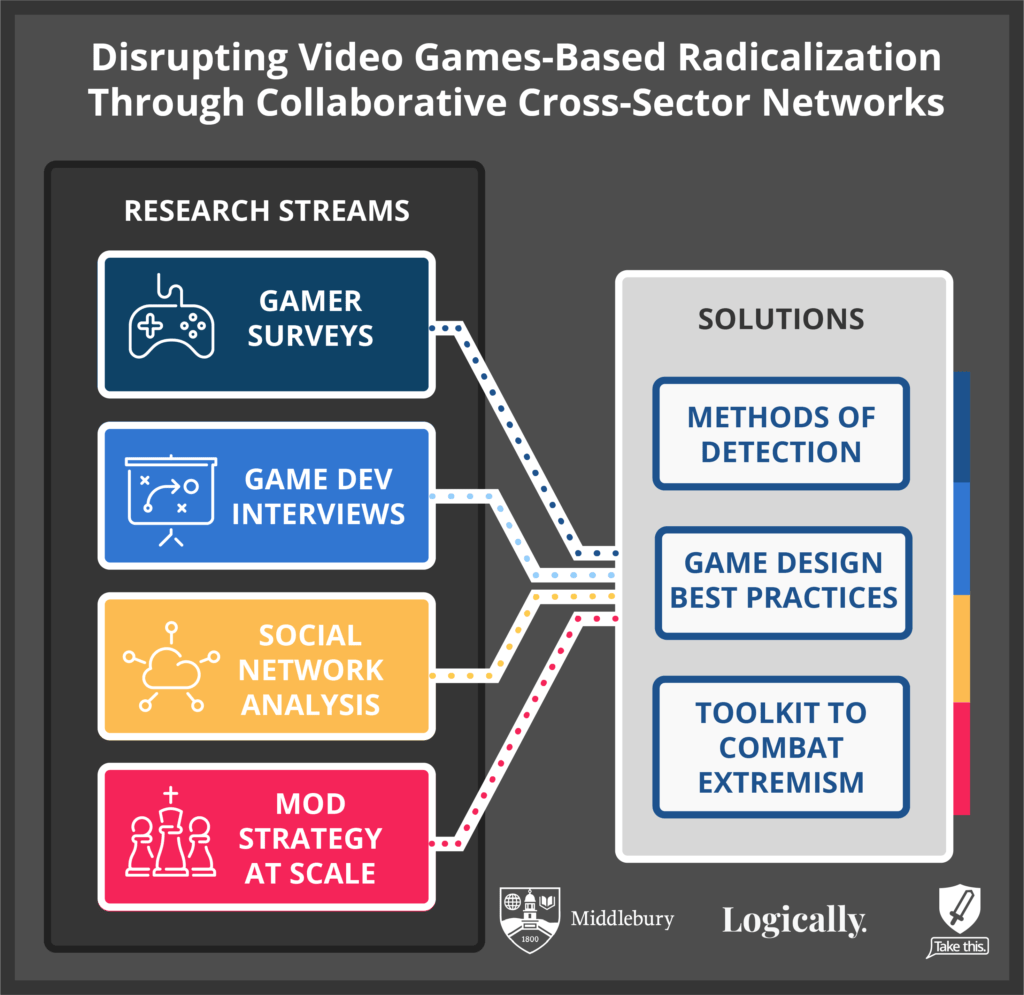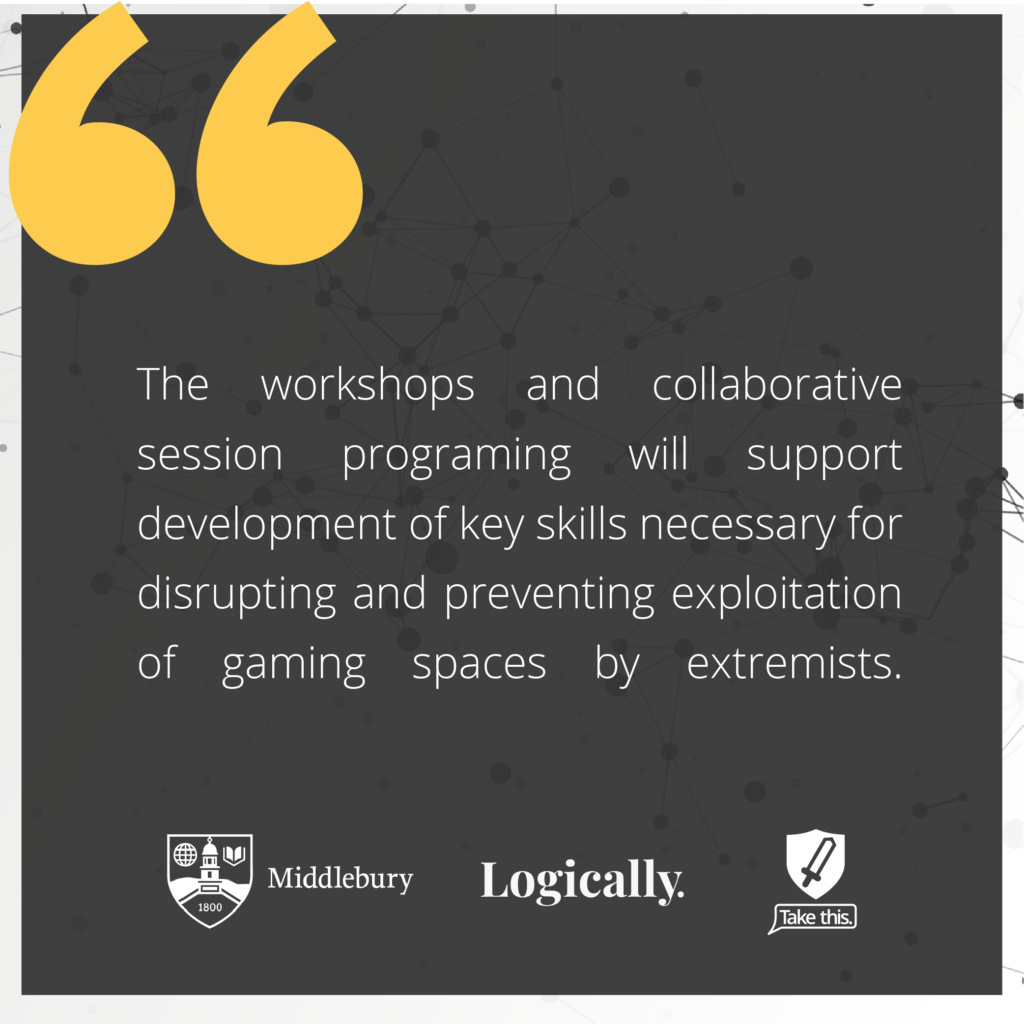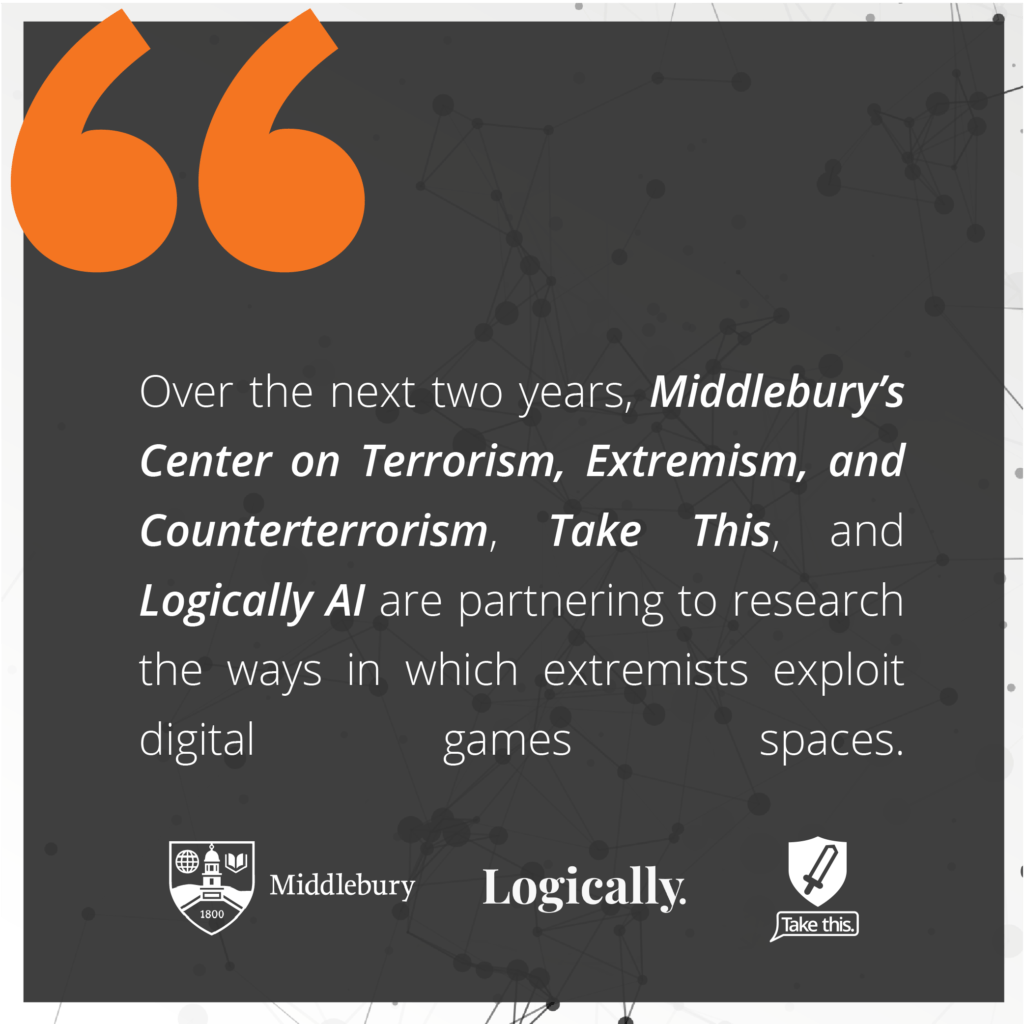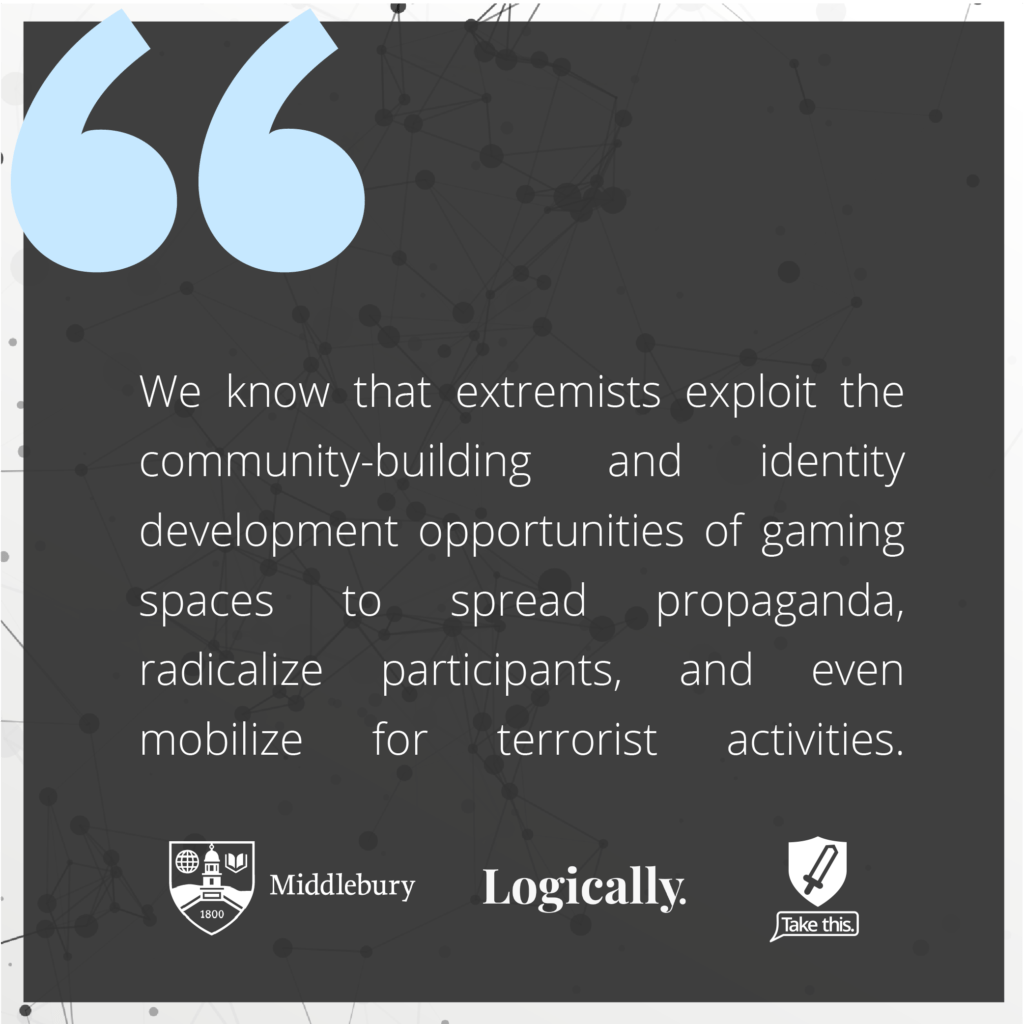Over the next two years, Middlebury’s Center on Terrorism, Extremism, and Counterterrorism, Take This, and Logically AI are partnering to research the ways in which extremists exploit digital games spaces. Researchers on the project aim to better understand the vulnerabilities of and threats to gaming communities and provide education and resources to the games industry and government stakeholders to better address this growing threat.

Over three billion people worldwide play digital games, and games have become one of the largest sectors in the entertainment business, surpassing film in 2020. Not only popular, video games are powerful tools for social connection and identity development, especially for adolescents and young adults. The communities and relationships fostered within game spaces as well as their impacts on individuals can persist out of the game into the “real” world. As highlighted during the early days of the pandemic, games have become a regular part of many individuals’ ways of connecting with family and friends and building social networks.
However, with the good inevitably also comes the bad. We know that extremists exploit the community-building and identity development opportunities of gaming spaces to spread propaganda, radicalize participants, and even mobilize for terrorist activities. High-profile acts of violence committed by right-wing terrorists active in online game communities such as the Buffalo, NY shooter and the Christchurch, NZ shooter highlight the need for greater counter-extremism measures in games. Further, online games aren’t simply meeting places for extremists – integrations of game elements in extremist identities and propaganda suggest that the narrative and world design of games can be used to support radicalization and recruitment.
Despite the profitability and popularity of digital games, industry and government understanding in creating games and gaming communities resilient to extremist exploitation remains limited. Many game studios lack the anti-extremist resources and experience that large social media companies have developed in the last decade. Even these social media platforms, no stranger to the need for effective content moderation and safety tools, can struggle to effectively combat extremist speech. The lack of resources and experience to manage extremist threats in the game industry have led to vulnerabilities within games and game communities that extremists continue to exploit. Extremist content, especially far-right, white supremacist content, has become an increasing problem in online and multiplayer game spaces.
This project aims to address crucial gaps in the game industry and government’s ability to effectively combat extremists threats by:
- Educating game developers on how to build resilience within game structures to extremist exploitation.
- Providing information and context to government officials to flexibly address games-based radicalization.
- Building collaborative public-private networks to create long-term strategies for resisting games-based extremism
These aims will be fulfilled through a series of workshops, collaborative sessions, and toolboxes designed to support developer, public-sector, and cross-sector stakeholders. To develop the program and resources, the researchers will conduct surveys with gamers, interviews with developers and other industry stakeholders, large scale rhetorical analysis of social media datasets, as well as scaled community and social network analyses. The workshops and collaborative session programing will support development of key skills necessary for disrupting and preventing exploitation of gaming spaces by extremists, such as:
- Understanding how extremist behavior evolves.
- Adaptability to changing socio-political landscapes that can impact extremist activity in games.
- Detecting and monitoring extremist activity.
- Establishing and enforcing community policies.
- Identifying game design elements that can impact extremist behavior.
- Supporting resilience, health, and safety for community managers.
- Supporting game developers through effective legislation.
The three toolboxes will be designed to support trust and safety, game designers, and public/legislative efforts:
- Methods for scaled extremism detection in games.
- Best practices for game makers, across disciplines (design, community management, etc) .
- A public sector-oriented manual for how to engage with the games industry to address games-based extremism.
This work is made possible by a grant from the Department of Homeland Security (DHS # EMW-2022-GR-00036).
Elizabeth Kilmer, PhD is a licensed clinical psychologist and a qualitative researcher in game studies for Take This, focused on developing resources to help the games industry combat extremism in gaming spaces.



